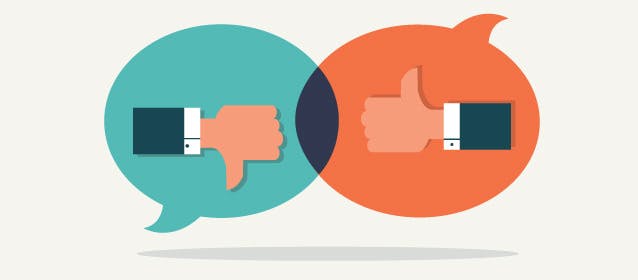Behavioral Economics on Fairness and Reciprocity

This post first appeared on enfoquederecho.com in Spanish.
– Why do we need Laws?
– We need Laws in order to ensure that citizens are treated equally and fairly.
At least, that could be a possible short and straight-forward answer to this question. But what defines what is fair or which actions are morally right?
If you ask different people, they would give you different answers on what fairness and equality is, especially when we take into account unpredictable and complex factors and external forces such as their own character, the society they live in or their religion.
The answer to the opening question might come from an upcoming but very promising science which has changed the basic assumptions of standard Economics on how rational humans behave when it comes to Decision Making. This science is called Behavioral Economics.
References
ANDREW T. STEPHEN AND MICHEL TUAN PHAM: On Feelings as a Heuristic for Making Offers in Ultimatum Negotiations. Columbia University https://papers.ssrn.com/sol3/papers.cfm?abstract_id=1131083
DANIEL KAHNEMAN, JACK L. KNETSCH AND RICHARD H. THALER (1986): Fairness and the Assumptions of Economics. The Journal of Business. University of Chicago https://www.anderson.ucla.edu/faculty/keith.chen/negot.%20papers/KahnKnetThal_FairEcon86.pdf
HERBERT GINTIS (2006): Behavioral Game Theory and Sociology. https://www.umass.edu/preferen/gintis/behavi~1.pdf
ERNST FEHR AND KLAUS M. SCHMIDT (1999): A Theory of Fairness, Competition, and Cooperation. The Quarterly Journal of Economics. The MIT Press. https://pareto.uab.es/prey/Fehr&Schmidt1999.pdf
HERBERT GINTIS (2009): The Bounds of Reason Game Theory and the Unification of the Behavioral Sciences. Princeton University Press
ERNST FEHR AND SIMON GÄCHTER (2000): Fairness and retaliation: The economics of reciprocity.Journal of Economic Perspectives.
About the Author
Chronis Lalas
Chronis Lalas is an upcoming Behavioral Economist who is researching and publishing about the applications of Behavioral Economics in the real world. As a young economist, his vision is to inspire students and the young generation to have a better understanding of Decision Making.
About us
We are the leading applied research & innovation consultancy
Our insights are leveraged by the most ambitious organizations
“
I was blown away with their application and translation of behavioral science into practice. They took a very complex ecosystem and created a series of interventions using an innovative mix of the latest research and creative client co-creation. I was so impressed at the final product they created, which was hugely comprehensive despite the large scope of the client being of the world's most far-reaching and best known consumer brands. I'm excited to see what we can create together in the future.
Heather McKee
BEHAVIORAL SCIENTIST
GLOBAL COFFEEHOUSE CHAIN PROJECT
OUR CLIENT SUCCESS
$0M
Annual Revenue Increase
By launching a behavioral science practice at the core of the organization, we helped one of the largest insurers in North America realize $30M increase in annual revenue.
0%
Increase in Monthly Users
By redesigning North America's first national digital platform for mental health, we achieved a 52% lift in monthly users and an 83% improvement on clinical assessment.
0%
Reduction In Design Time
By designing a new process and getting buy-in from the C-Suite team, we helped one of the largest smartphone manufacturers in the world reduce software design time by 75%.
0%
Reduction in Client Drop-Off
By implementing targeted nudges based on proactive interventions, we reduced drop-off rates for 450,000 clients belonging to USA's oldest debt consolidation organizations by 46%



















